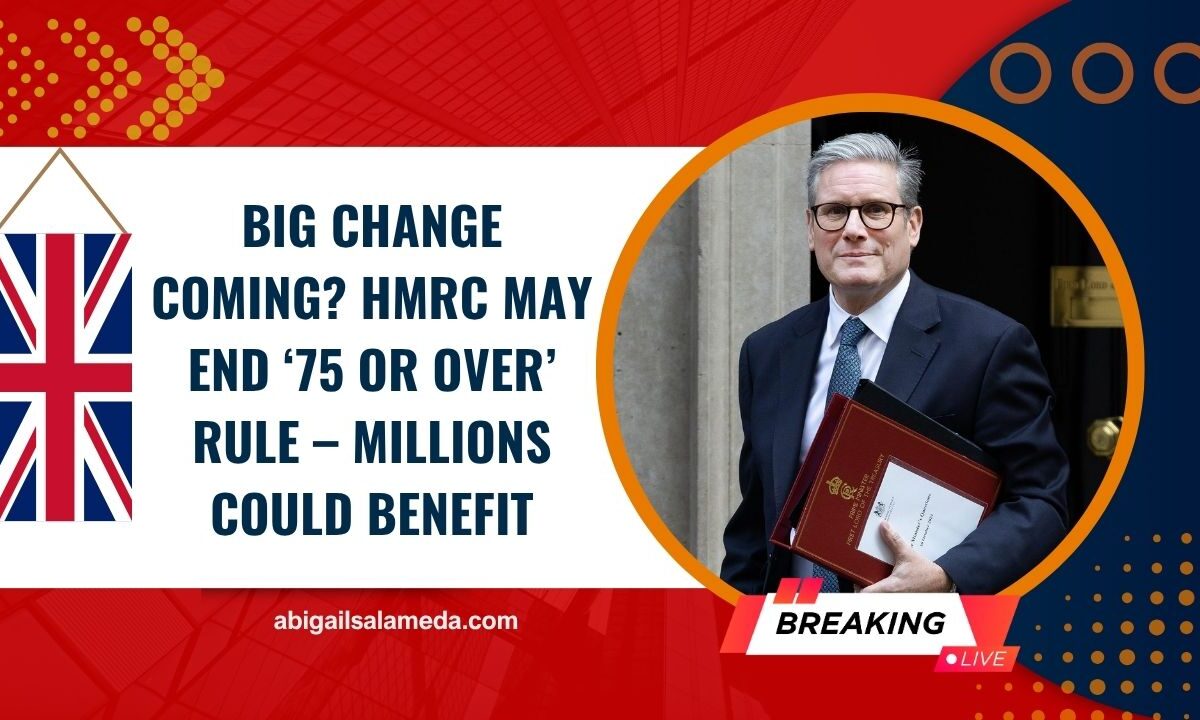In a move that could transform inheritance tax (IHT) implications for thousands of grieving families, HMRC is under pressure to abolish the ’75 or over’ pension rule.
This long-debated rule currently impacts how unused pensions are taxed when a person dies aged 75 or older, often leading to double taxation and unnecessary financial stress for beneficiaries.
With the Labour government now in power, economic and financial leaders are urging Chancellor Rachel Reeves to revisit this outdated system. If reformed, millions of households across the UK could benefit—both emotionally and financially.
Understanding the ’75 or Over’ Rule
Under current UK tax rules:
- If someone dies before age 75, beneficiaries can typically inherit pension savings tax-free.
- If death occurs at or after age 75, beneficiaries face income tax on the withdrawn funds at their marginal rate.
- In addition, if the government proceeds with its planned IHT expansion, families could also face a 40% inheritance tax on any remaining pension savings over a threshold, resulting in double taxation.
This has led to public outcry and confusion, particularly among families dealing with the loss of a loved one.
What’s Changing?
A new report by The Investing and Saving Alliance (TISA) and Oxford Economics suggests a simpler solution: only pension pots above £90,000 should be subject to tax upon death.
Anything below that threshold should be passed on tax-free, regardless of the age of the deceased.
Key Points from the Report:
- Introduce a £90,000 pension threshold for tax exemptions.
- Eliminate automatic inheritance tax inclusion for pensions after age 75.
- Apply income tax only on actual withdrawals by beneficiaries, simplifying the entire process.
Experts argue this proposal strikes a balance between fairness and government revenue generation, without imposing unfair burdens on bereaved families.
Why the Current System Is Problematic
Several financial experts have weighed in on the complexity and harm the current rule causes:
- Tom Selby, AJ Bell: “Inheritance tax is arguably the most complex, time-consuming way of taxing pensions.”
- Andrew Tully, Nucleus: “The system is confusing and slows death benefit payments, triggering financial penalties.”
- Renny Biggins, TISA: “We’re not trying to remove taxation altogether—we just want something fairer and simpler.”
This complexity can delay the release of death benefits, trigger late payment interest penalties, and discourage pension savings altogether.
Financial Impact on Households
If the government moves ahead with taxing pensions of the deceased aged 75 or over both as income and inheritance, it could consume over 50% of what’s left in a person’s pension pot.
Here’s a breakdown of how the tax burden could impact different pension values:
| Pension Pot Value | IHT (40%) if applicable | Income Tax on Remaining (20%) | Total Tax Paid | Net Received |
|---|---|---|---|---|
| £80,000 | £0 | £16,000 | £16,000 | £64,000 |
| £100,000 | £4,000 | £19,200 | £23,200 | £76,800 |
| £200,000 | £44,000 | £31,200 | £75,200 | £124,800 |
| £300,000 | £84,000 | £43,200 | £127,200 | £172,800 |
Under the new proposal, pension pots under £90,000 would be exempt from this tax structure, offering greater clarity and financial relief for the majority of households.
Why Experts Are Calling for Change
The current process of bringing pensions into IHT is seen as:
- Punitive to families who’ve saved responsibly.
- Discouraging for pension contributions.
- Complex for investment platforms and financial firms to administer.
Experts argue this creates distrust in the pension system, potentially affecting long-term savings behaviours. As Craig Rickman from Interactive Investor said, “This could damage trust and confidence in the pension system.”
As the UK faces growing pressure to simplify its pension inheritance framework, the proposed end to the ‘75 or over’ rule could mark a significant turning point.
Not only would it spare grieving families from unnecessary stress and double taxation, but it could also rebuild confidence in retirement planning.
For the Labour government and HMRC, this presents an opportunity to modernize the tax code, making it more humane, efficient, and fit for purpose. If adopted, the move could bring fairer outcomes and financial peace of mind to millions across the UK.
FAQs
What is the ‘75 or over’ pension rule?
It’s a rule that makes pensions taxable when someone dies aged 75 or older—via income tax and potentially inheritance tax.
Who could benefit from scrapping this rule?
Millions of UK households, particularly middle-income families, who are likely to inherit modest pension pots under £90,000.
Is this rule change confirmed?
Not yet. It’s under strong recommendation by financial bodies and being reviewed by HMRC and the Treasury.




